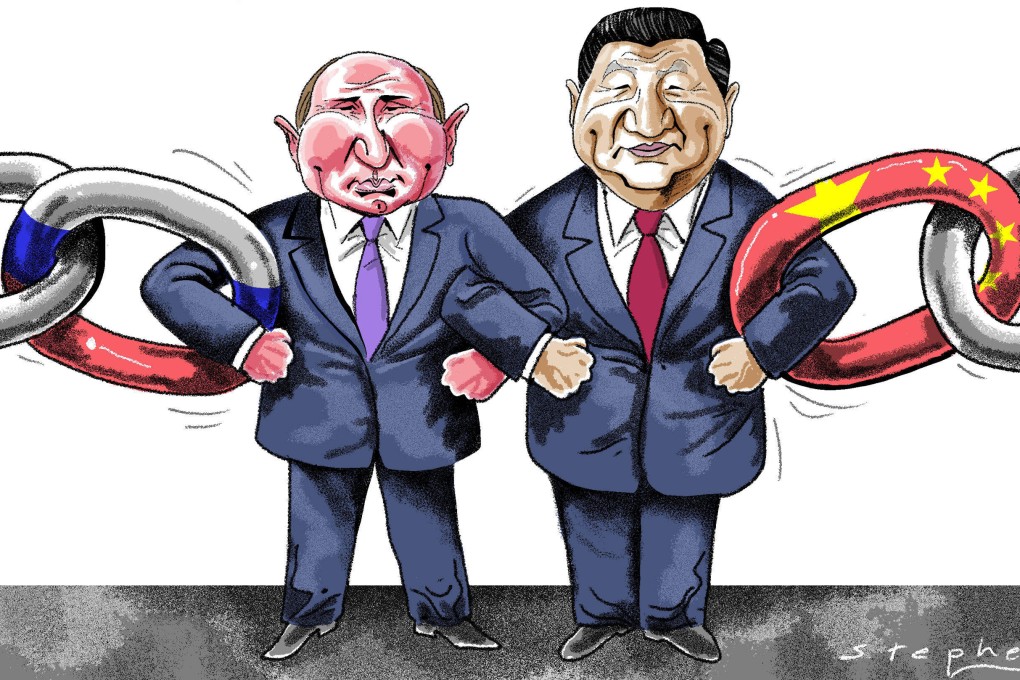Advertisement
Opinion | The China- Russia ‘no limits’ partnership is still going strong, with regime security as top priority
- Those who believe Xi has broken with Putin over Ukraine misunderstand the partnership – both view regime security as their main priority and are determined to shape the international order so authoritarian states can be rule-makers
- As long as both sides continue to agree to disagree on the issues that divide them, in spite of sanctions pressure, they will remain bound together
Reading Time:4 minutes
Why you can trust SCMP
48

This month’s meeting between the Chinese and Russian presidents on the sidelines of the Shanghai Cooperation Organisation (SCO) summit in Uzbekistan has led to renewed scrutiny of the scope and depth of the Sino-Russian strategic partnership.
Xi Jinping referred to Vladimir Putin as his “dear and old friend” but Putin admitted Xi had raised “questions and concerns” about Ukraine, though the Russian president also praised China’s “balanced position” on the conflict.
Many observers jumped to the conclusion that Xi has finally broken with Putin over Ukraine. This reflects a misunderstanding of what the “no limits” partnership between Russia and China really means.
Advertisement
Despite their many conflicts of interest in Ukraine and elsewhere, Russia and China continue to be bound together. Typically we focus on geopolitical factors such as perceived threats from the US and its allies, the need for security along their lengthy border and their growing energy partnership.
But, under Xi and Putin, the normative dimension has also been significant – both view regime security as their main priority and are determined to shape the international order in such a way that authoritarian states can be rule-makers.
Advertisement
Just 20 days before Russia invaded Ukraine in February, Putin and Xi signed a statement proclaiming there were “no limits to Sino-Russian cooperation … no forbidden zones”. This does not mean the partnership has no parameters.
Advertisement
Select Voice
Select Speed
1.00x
